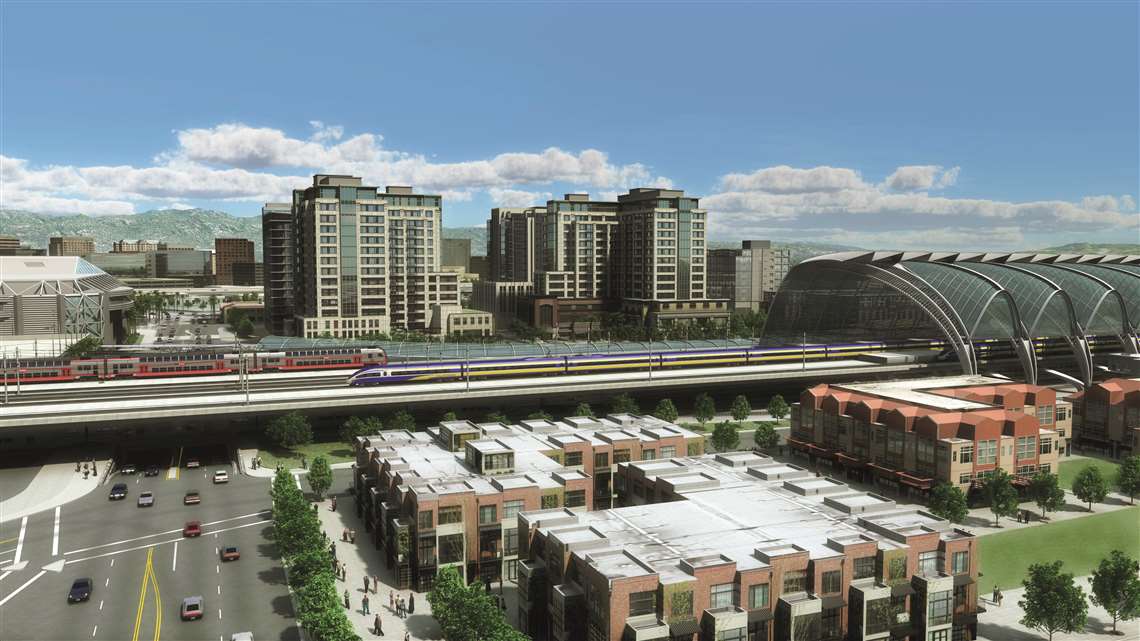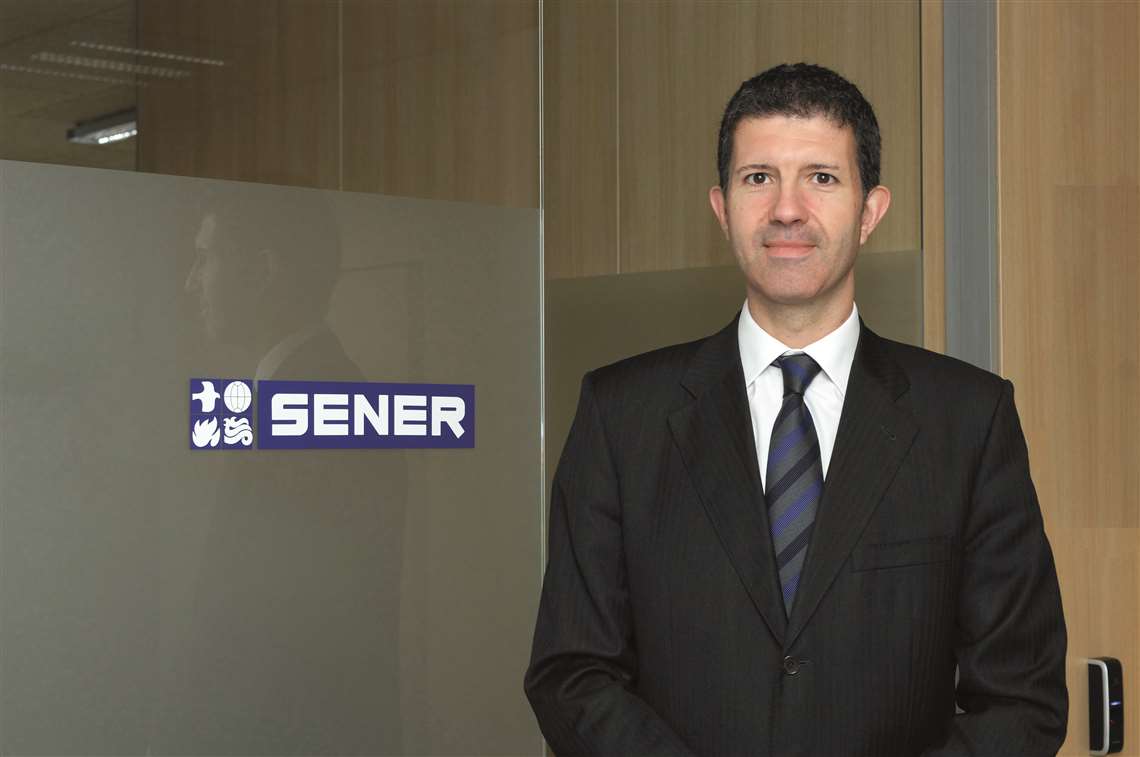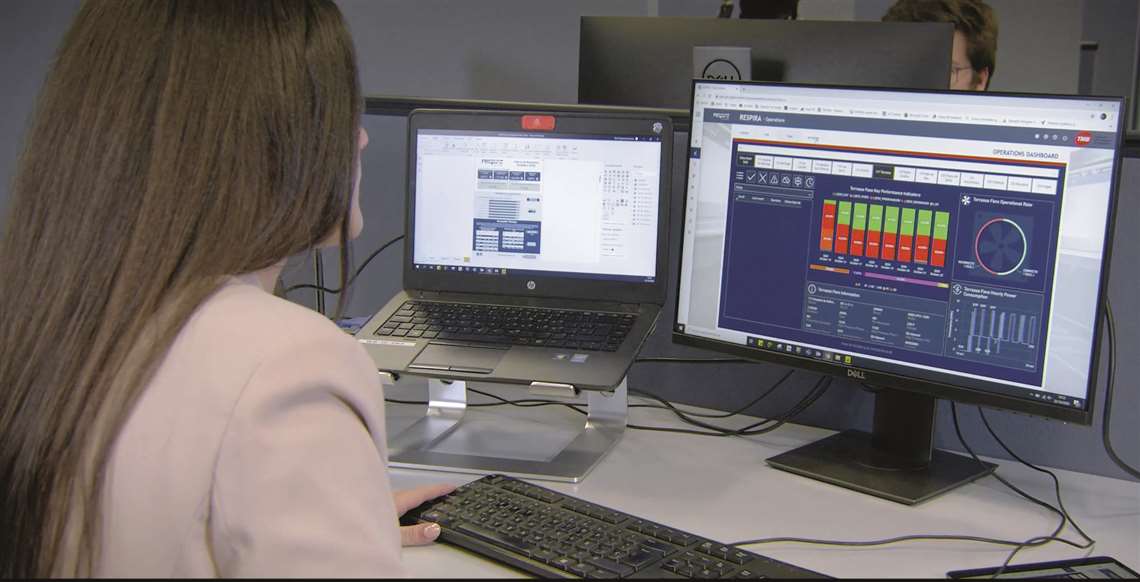Industry interview: SENER
03 March 2021
 SENER has been involved in the high speed rail line in California, US
SENER has been involved in the high speed rail line in California, US
In November of last year SENER announced that Gabriel Alarcón, previously general manager of Technology and Innovation had been appointed managing director of SENER Engineering, the area which handles the company’s Infrastructure, Energy and Marine activities worldwide.
The Span-based company, founded in 1956, has four main divisions: aeropspace, energy, infrastructure, and marine. The company is currently involved with projects such as the Salvador monorail in Brazil, expanding the airfield at Dublin International Airport and on the Brisbane Cross River Rail Project in Australia.
Andy Brown (editor, International Construction): Congratulations on the new role. Can you tell us what some of your main goals are?
Gabriel Alarcón: Thank you very much, it is a great honour for me to be directing a leading company like SENER. In terms of management, let me answer your question with three concepts.
The first is sustainable growth. We want to grow our Engineering and Technology business, but based on the excellence that has allowed us to be what we are today. We are going to deal with this growth through organic development in those countries and technologies where we are already strong; and through acquisitions of a very technological nature or to accelerate our progress in those countries where we are prioritising.
The second concept has to do with advancing the transition of our Energy business. On the one hand, we are going to finish the completion cycle and guarantees of several of our large projects where we have identified risks. On the other hand, we are starting to market new products and services in keeping with the new energy paradigm.
The third concept refers to the digitisation process. Having launched and improved our own digital transformation, we are guiding other companies as they transition to a digital model, in their own de facto digital revolution.
 Gabriel Alarcón, managing director, SENER Engineering
Gabriel Alarcón, managing director, SENER Engineering
What has been the impact of Covid-19 on business?
A circumstance of the magnitude of this pandemic significantly affects any business, in many ways. We have had several negative incidents, some directly and others indirectly. For example, several of our clients have delayed decisions on projects in areas as diverse as energy and passenger ship construction. Some of our plants under construction have suffered delays due to the restrictions inherent to the different safety measures, including lockdowns, or because equipment and materials have been delayed.
The effect on some new products and services we are launching has also been considerable, because these are not established lines and the clients – in many cases new – have to make numerous internal decisions, which have been blocked. Despite this, our business remains generally strong.
You were previously the general manager of Technology and Innovation. how DOES SENER use new technology in construction projects?
This is the easiest question to answer due to the large number of examples, but also the most difficult one because of the need to choose. I have to mention RESPIRA, our artificial intelligence (AI) ventilation system for large interconnected spaces.
In this case, the project emerged from a typical contract to do a technical audit of the ventilation of the metro network of one of our clients, TMB. Our engineers noticed that one thing that had always been done one way could be done much better by using AI, thus optimising the network while making it sustainable and improving comfort. They had to convince the customer, who wasn’t asking for that, and managed to design a scalable, easy to implement and configurable system that in just two months of operation has already improved the objective comfort on the platforms of the stations, saved the operator a lot of money and emitted less CO2.
Do you see sustainability and green construction as a trend?
 RESPIRA is the company’s artificial intelligence ventilation system for large interconnected spaces
RESPIRA is the company’s artificial intelligence ventilation system for large interconnected spaces
I think sustainability is already well beyond being a trend. The concept of a trend is always associated with the idea of transition, of going somewhere. At SENER, we’ve already made a conscious decision that can’t be undone. For years, society wondered what kind of planet we would leave to new generations. Today, we know how we want to answer this question and we have already made meaningful and difficult decisions in this regard.
In the world of construction, I think certain tendencies will disrupt our reality. I am fascinated by the potential power of artificial intelligence or autonomous devices and augmented or mixed reality. One of the effects we are already seeing is the blending of traditional economic or technological sectors. Today everything is being combined and restructured in ways we can only begin to imagine. We are living in exciting times that will change us radically.
Is the construction industry now starting to accept new technology?
For years, this sector has been accused, and maybe rightly so, of being too reactionary, of not improving its productivity and of not incorporating new technologies quickly enough. However, I think that the boundary conditions were detrimental for a long time. The technology available wasn’t exactly right; many solutions developed for the industry were not suitable for our needs.
At the same time, we had a global economic crisis which affected construction in particular, and a shift in the energy paradigm that has disrupted the industrial construction sector; and I’m not ignoring the fact that a significant percentage of our clients are public, which are slower to absorb changes in technology than the private sector. Even the contracting models are being reconsidered. For example, in many cases EPC contracts are being replaced by other forms of collaboration.
Going back to your question, the opportunities and specific initiatives for applying new technologies are already plentiful and will continue to grow. Industry 4.0 and digitisation as a whole offer appropriate and efficient solutions for our sector. Our sector is improving rapidly and, in a few years, it will undergo a major and necessary revolution. Only those who see it as an opportunity will come out the other side stronger, the rest risk serious consequences.
STAY CONNECTED


Receive the information you need when you need it through our world-leading magazines, newsletters and daily briefings.




